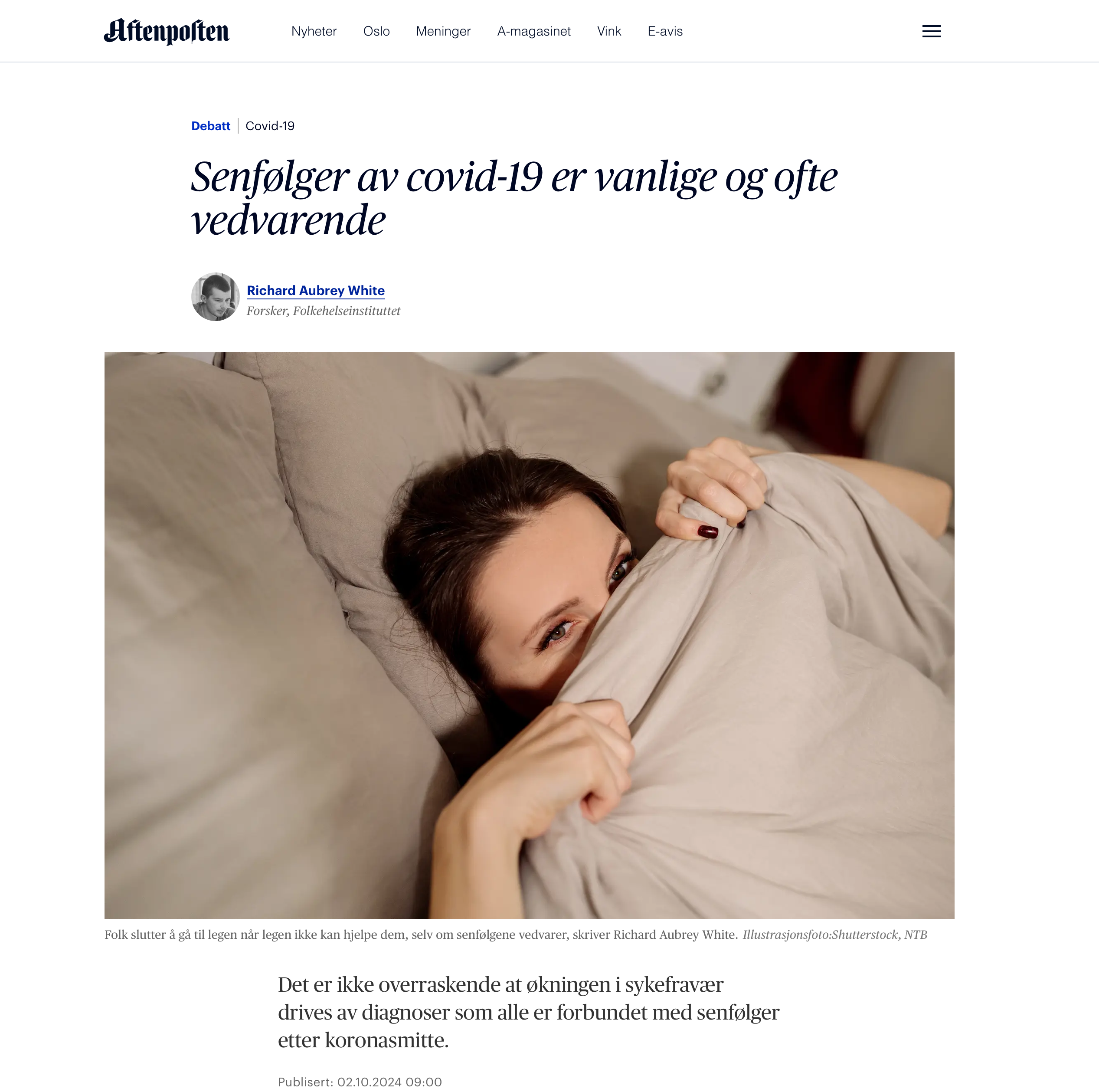
This is a translation of the original Norwegian op-ed, and discrepancies may exist.
In an article in Aftenposten on September 27, Professor and Director Preben Aavitsland at the Norwegian Institute of Public Health (NIPH) claims that long covid is “rare and often resolves over time.”
This is incorrect — long covid is common and often permanent.
Aavitsland’s claim about duration likely stems from NIPH’s study, which only analyzes the number of general practitioner visits after COVID-19 infection. His interpretation — that fewer visits means the long covid is cured — is incorrect. People stop going to the doctor when the doctor can’t help them, even if the symptoms persist.
Cumulative Risk Increases
A health-based COVID-19 study — which looked at health status rather than doctor visits — recently showed that COVID-19 led to a 6 percent risk of memory problems more than a year later in Norwegians without prior immunity. Vaccination and prior immunity are about 50 percent effective at preventing long covid, so the risk can be reduced to around 3 percent per infection for most people.
The cumulative risk after two infections is then 5.9 percent; after four infections, 11.5 percent; after six infections, 16.7 percent.
This is one example, but several studies show the same result — repeated infections increase cumulative risk to an unacceptable level. This must be seen in the context of today’s mass-infection strategy, where people are infected on average once a year.
It is no surprise that the rise in sick leave is driven by three diagnostic codes (A04, P02, and P29), all of which are associated with long covid.
Downplaying the Burden
The mass-infection strategy was supported by NIPH’s risk assessments, which only considered acute COVID-19. The NIPH has never published a risk assessment of the strategy that includes long covid.
In light of the high rates of sick leave, likely due to long-term effects, those responsible for the strategy — and for the missing risk assessments — have strong incentives to downplay the burden long covid places on society.
We must prevent COVID-19 infections and long covid. This can be done by improving ventilation, using air purifiers, and recommending the use of FFP2 respirators when transmission is high.
Richard Aubrey White holds a Ph.D. in biostatistics from Harvard University. White is a researcher at the Norwegian Institute of Public Health, but does not speak on behalf of the NIPH.